Last-Minute NYC Holiday Gift Guide 🎁
We’ve created a holiday gift guide with presents for the intrepid New Yorker that should arrive just in time—


The Duchess of Carnegie Hall: Photographs by Editta Sherman will open today at The New York Historical Society, and what better place to celebrate this exhibit than in the recently opened, fourth floor, Joyce B. Cowin Women’s History Gallery. The exhibit highlights the life and portrait work of a woman that, in her own right, was an iconic figure, consisting of fifty selections donated to the New York Historical Society by her children and grandchildren.
As one of the few women photographers of her time, Ms. Sherman carved out a successful career after the death of her husband in 1954, photographing portraits of the ‘A’ list in art, literature, music and New York society. As a single mother of five young children, she worked tirelessly toward that end, within the confines of the artistic community that lived and worked in the studios above Carnegie Hall. She was one of the last of the remaining residents of the Carnegie Hall Studios, along with her long-time friend and fellow photographer, Bill Cunningham, having lived and worked there since 1949 in her penthouse studio.
She, along with other artists, were forced out in 2010 by the City of New York. But before they moved, her neighbor and friend, Josef Astor, shot the short documentary film ‘Lost Bohemia,’ which is on view in the gallery, adding to the exhibit her voice, her way of living, and a bit of her spirit. Editta Sherman, The Duchess of Carnegie Hall, moved out in 2010. She died at the age of 101 in 2013.
Untapped Cities was fortunate to meet friend and filmmaker, Josef Astor, her son Kenneth Sherman, and Bettina Cirone, dancer, model, and photographer, who was a friend and neighbor in the live/work studios above Carnegie Hall. Below are images of the exhibit, The Duchess of Carnegie Hall: Photographs by Editta Sherman, along with some of her personal treasures.
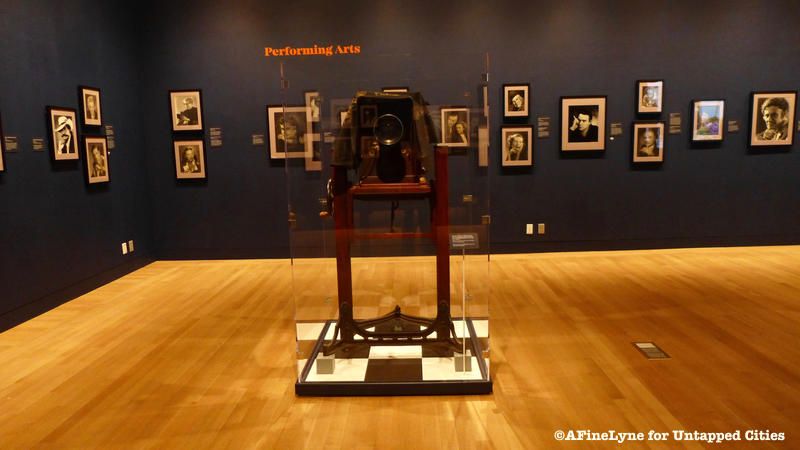
The exhibit is divided into categories pertaining to the arts, beginning with Culture, Media and Politics ~ Art and Literature ~ the largest group, which is Performing Arts ~ and Music. In the center of the room stands her camera, an Eastman Kodak studio camera with Wollensak lens, perched on a wood and brass frame, with vinyl, cloth and rubber. She said that this camera once belonged to her father. The camera is a gift to the New York Historical Society from her son, Kenneth Sherman, who was part of our gallery tour.
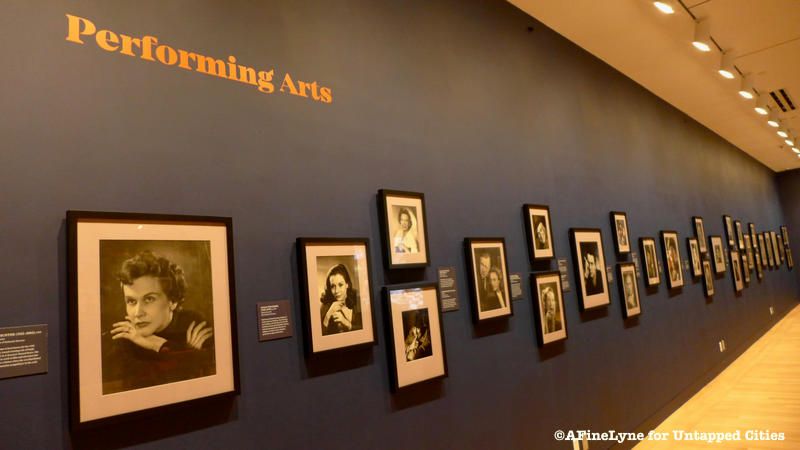
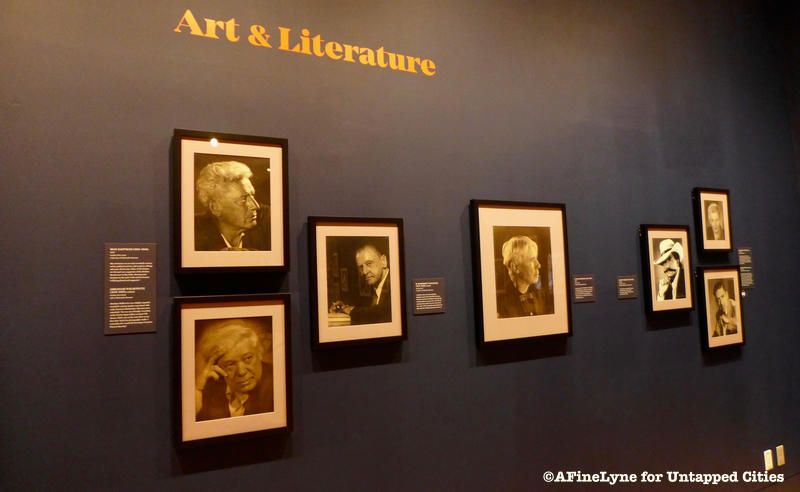
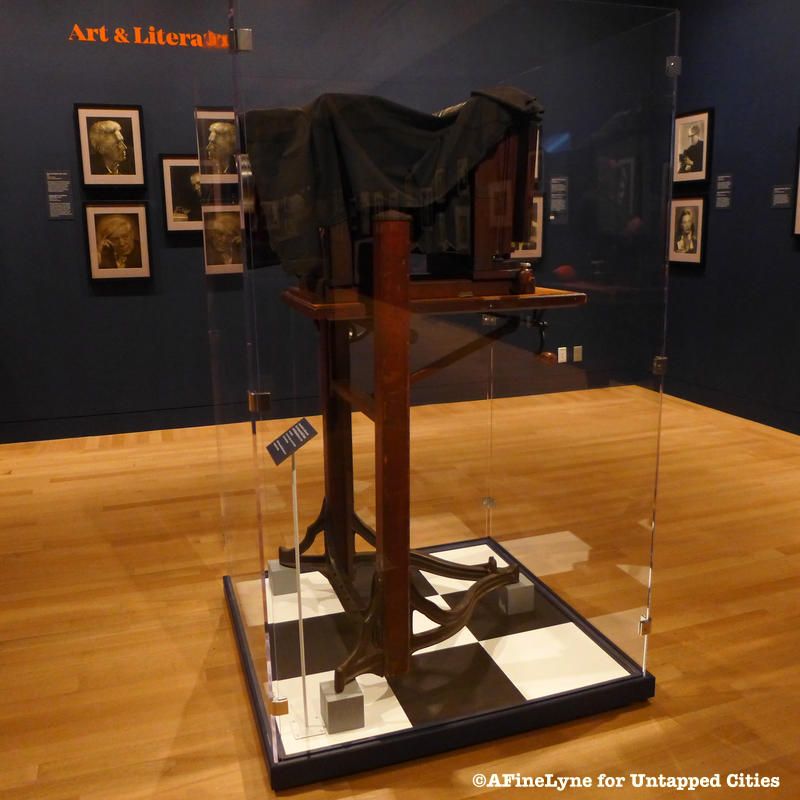
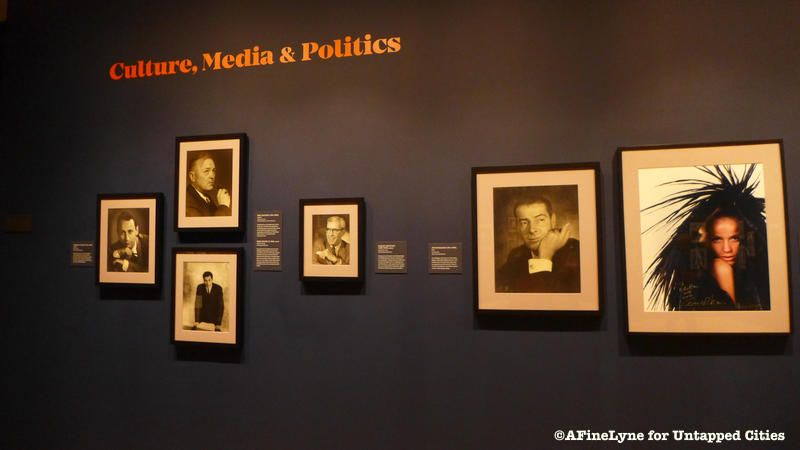
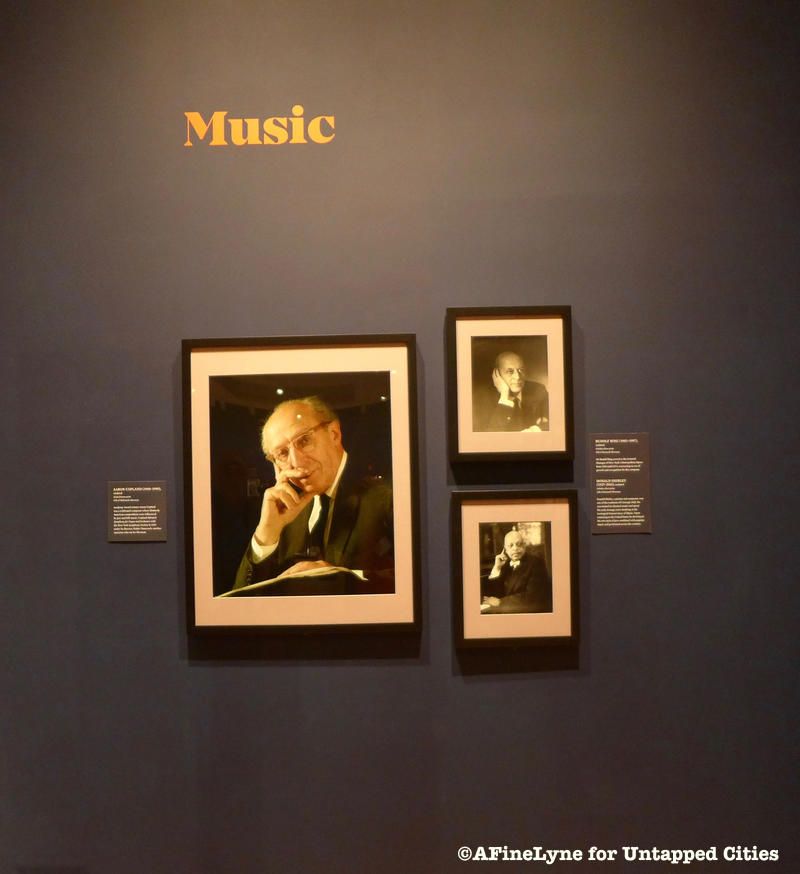
On left, Aaron Copland, composer. Top right, Rudolf Bing, who served as General Manager of New York’s Metropolitan Opera from 1950 – 1972. Bottom right, Donald Shirley, pianist and composer and one of the residents of Carnegie Hall.
She used her 5 x 7 inch up to 11 x 14 inch formats because she felt that they captured more detail. In the darkroom, she used a technique called dodging and burning, or manipulating the exposure time of portions of the image to produce lighter or darker passages in the photograph.
“She regarded this magical part of photography as akin to painting. When possible, she printed on a beautifully textured Gavelux paper, which was very fragile but gave her work a deep, soft, and luxurious finish.” It was said by W. Somerset Maugham, “We see that Editta has caught a few hard grains of time itself. Life is something pinned down by light and time. Her portraits are forever.”
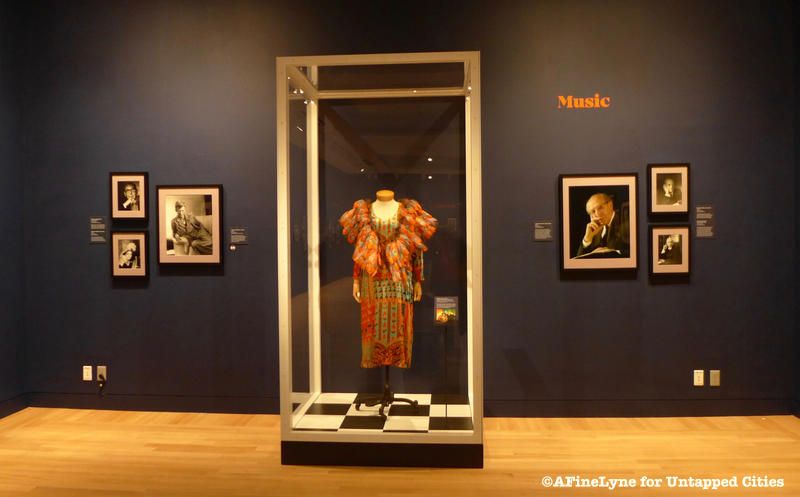
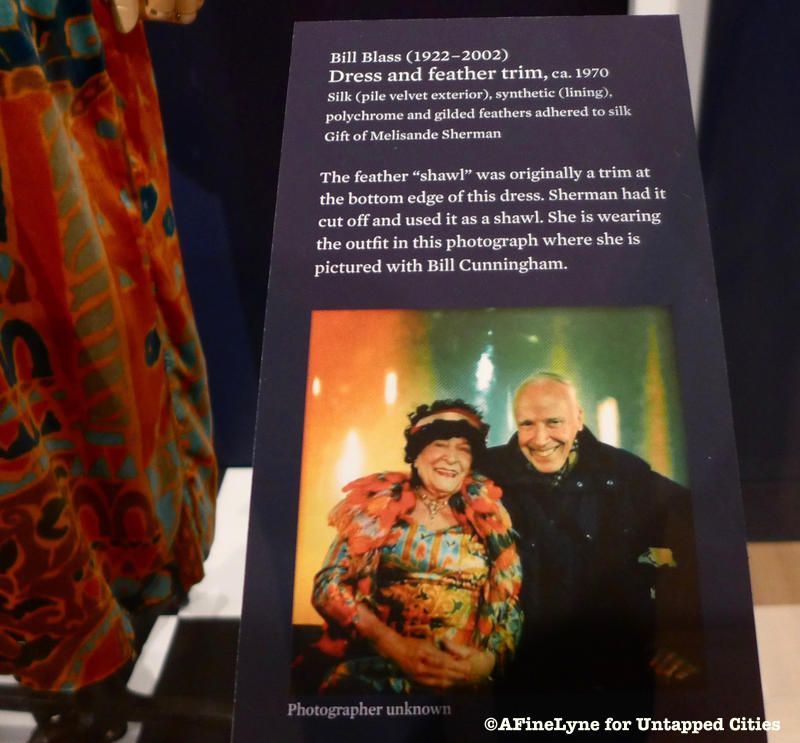
Photo of Editta Sherman and Bill Cunningham by Andrew Brucker
Bill Cunningham was the one who dubbed Editta “The Duchess of Carnegie Hall.” He would frequently have Editta dress in period costume and pose in places of significance throughout the City.
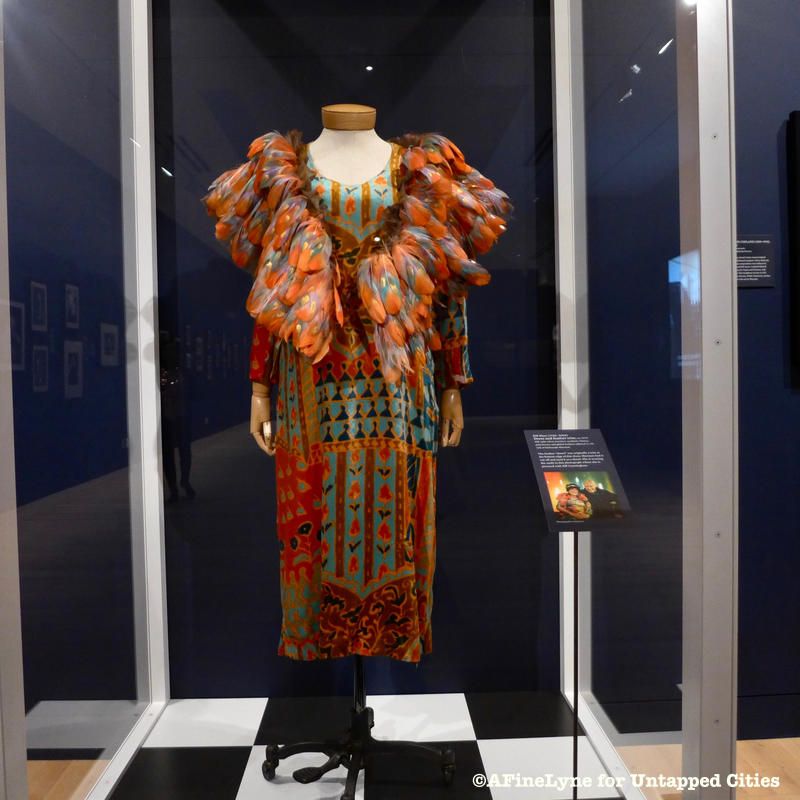
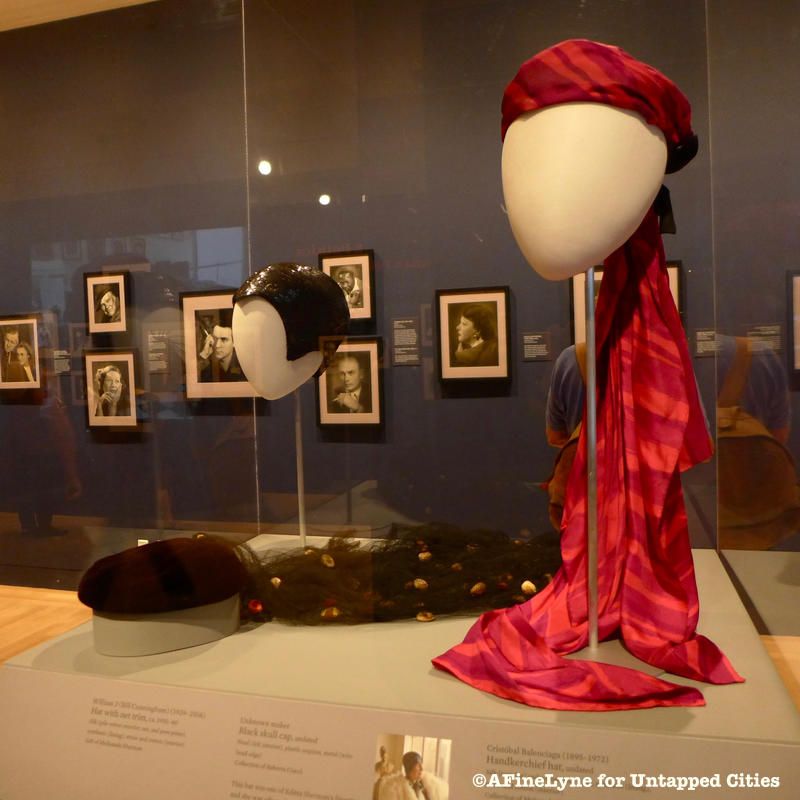
Hat with net trim (Bill Cunningham); Black skull-cap of wool, plastic sequins, metal. It was one of Editta Sherman’s favorite hats, and she was often pictured wearing it; Cristobal Balenciaga Handkerchief Hat
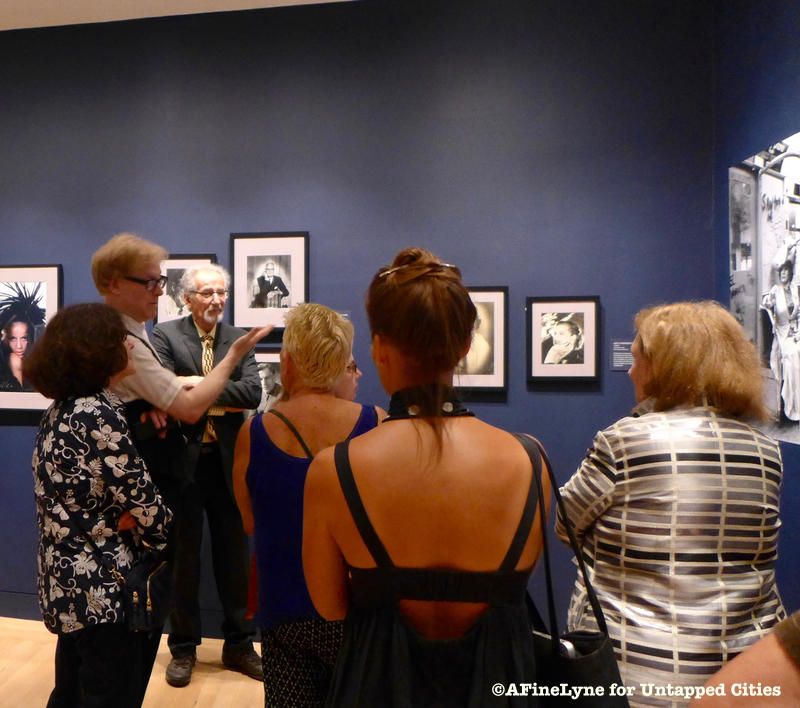
Josef Astor (above) speaking about his life at the Carnegie Hall Studios, where he lived on the 8th floor beginning in the 1980s. It was Mr. Astor who filmed the documentary, Lost Bohemia, sharing this rare footage of Editta and her friend, Bill Cunningham. Next to Mr. Astor, stands Editta’s son Kenneth Sherman (above).
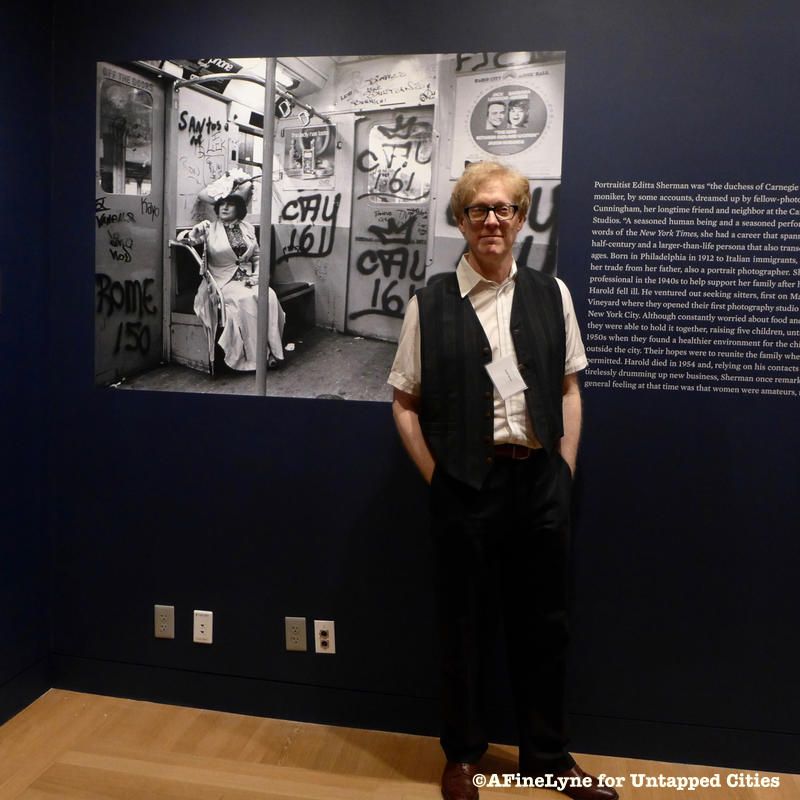
Josef Astor standing in front of a photograph of Editta Sherman taken by Bill Cunningham. Below is Mr. Astor sitting in Editta’s apartment, as he readies himself to have his portrait taken by The Duchess.
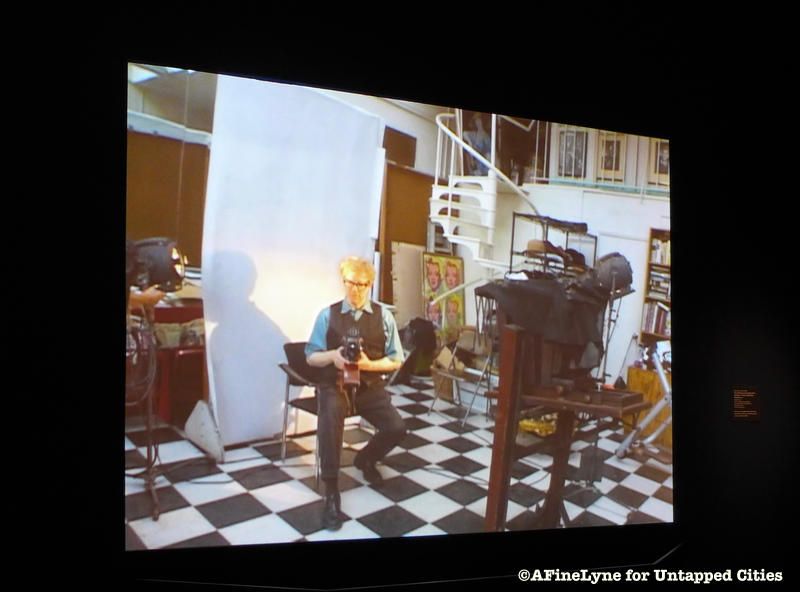
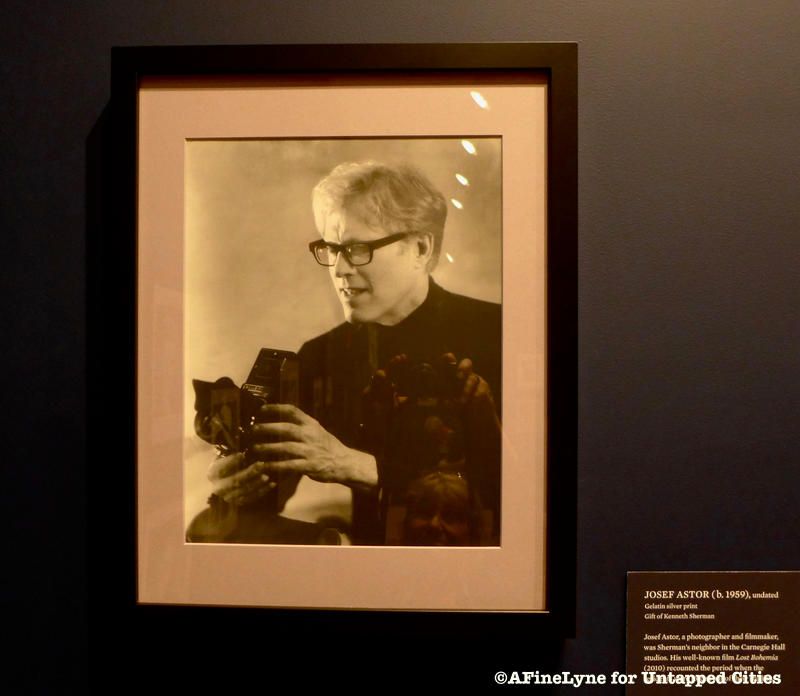
Portrait of Josef Astor taken by Editta Sherman
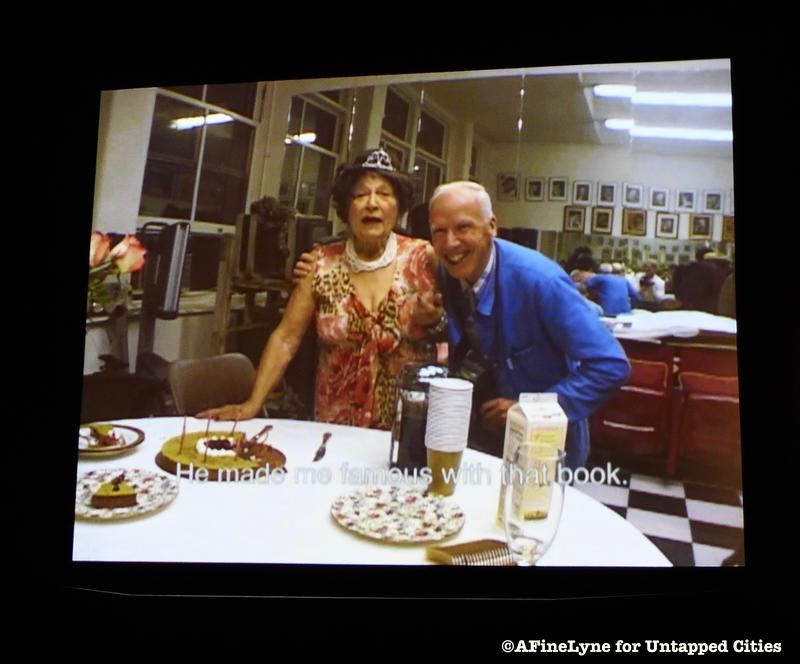
Birthday celebration in Editta Sherman’s 20′ x 30′ top-floor studio, with friend and neighbor, Bill Cunningham. Her apartment had skylights from one end to the other, with double-height windows facing north.
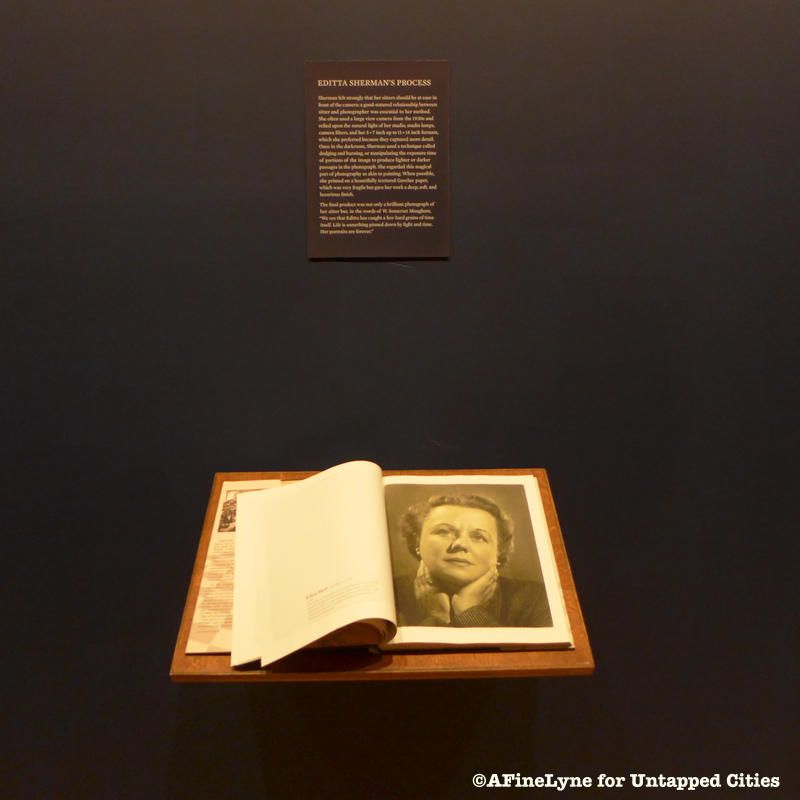
A short anecdote worth mentioning is that for 99 years, Editta had never voted. After meeting President and Mrs. Obama, she registered to vote, and voted for the first time at the age of 100.
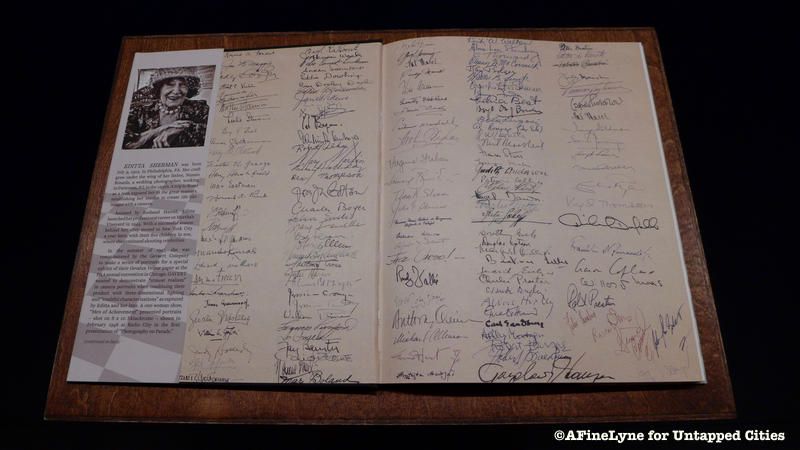
The exhibit is curated by Marilyn Satin Kushner, curator and head, Department of Prints, Photographs, and Architectural Collections. The exhibit will be on view to October 15, 2017 at The New York Historical Society, 170 Central Park West, at 77th Street.
Next, check out New York Talking Statues, including one at the New York Historical Society, and 19 Outdoor Art Installations Not to Miss this Month. Get in touch with the author at AFineLyne.
Subscribe to our newsletter